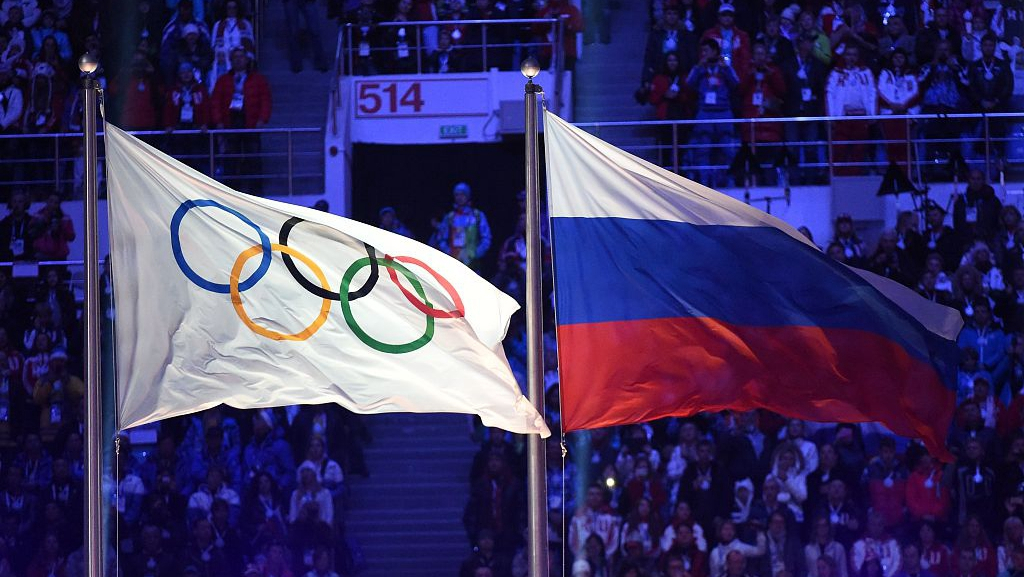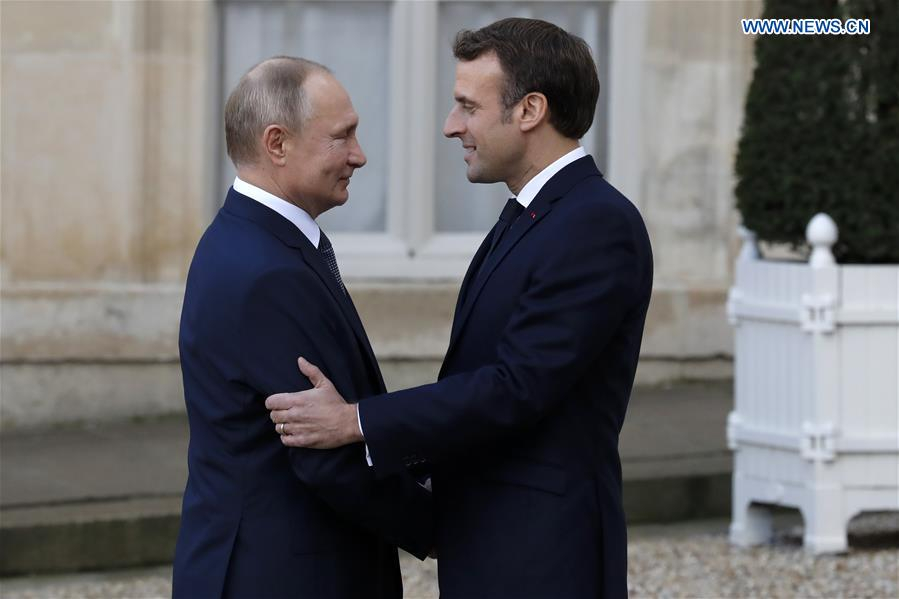
Editor's note: Cui Zheng is an associate professor at the Research Center for the Economies and Politics of Transitional Countries, Liaoning University. The article reflects the author's opinions, and not necessarily the views of CGTN.
The executive committee of the World Anti-Doping Agency (WADA) agreed to a series of tough measures against Russia on December 9. It is considered to be the "most severe punishment" in history. Russia is prohibited from participating in and bidding for major international sports events in the next four years. Russian athletes can only participate in international competitions under a neutral flag.
In addition, Russian officials, representatives of the Russian Olympic Committee (ROC) and the Russian Paralympic Committee (RCC) are also banned from participating in the Olympic and Paralympic Games.
The reason for such severe punishment is that the WADA believes that the Russian Anti-Doping Agency (RUSADA) did not actively cooperate with its investigation after its reinstatement in September 2018. WADA also claims that the sample data submitted by the Moscow laboratory in January 2019 was incomplete and untrue. A great deal of data was deleted and changed.
Several countries and organizations have already upheld WADA's decision. The International Olympic Committee states that the decision is binding and will also support the ruling of the Court of Arbitration for Sport in future if Russia appeals. The Australian Olympic Committee has made clear its support for all sanctions against Russia. Norway said it would refuse Russia's participation in the Ski World Cup.
The head of the U.S. Anti-Doping Agency said the ruling against Russia was "too moderate" and that the failure to ban Russian athletes from participating in any sports event was a blow to international sports. Although Russia still has the option to appeal, according to the reaction of other organizations, there is a high possibility that the sanctions would be implemented.
Although, strictly speaking, it is only a sports decision, the timing of the announcement during the Normandy Four Summit has raised suspicion that the decision could be motivated by political purposes rather than for international sports.
In June 2014, the leaders of Ukraine, Russia, Germany and France established the "Normandy Format." At the 70th anniversary of the Normandy landing, leaders of the four countries discussed, for the first time, how to resolve the conflict in the Donbass region. Since then, several telephonic conversations and summits have been held under this framework.

French President Emmanuel Macron welcomes Russian President Vladimir Putin as he arrives at the Elysee Presidential Palace to attend a summit on Ukraine in Paris, France, December 9, 2019. /Xinhua Photo
French President Emmanuel Macron welcomes Russian President Vladimir Putin as he arrives at the Elysee Presidential Palace to attend a summit on Ukraine in Paris, France, December 9, 2019. /Xinhua Photo
"Normandy Format" is a new possibility where the Ukraine issue could be resolved without the inclusion of the U.S. Both France and Germany are hoping to take the role of a strong European country in resolving the Ukraine crisis and seek a more independent Europe.
The Normandy Four Summit kicked off in Paris on December 9. During the summit, bilateral talks between Russia and Ukraine were also held. The meeting's atmosphere was relatively positive. At the end of the meeting, the communique released covered the stability issue in Donbass and the natural gas transit and prisoner exchange matter was also discussed at the summit.
In this backdrop, Russia believes that there are serious political considerations behind the timing of WADA's announcement. This could impede the improvement of Russian-European ties that seems to be on a positive course. Russian President Vladimir Putin slammed the decision as "politically motivated," which seriously violates the provisions of the Olympic Charter.
He emphasized that all punishment should be directed at the individual athletes who breached the rules rather than the state. The collective punishment on a national scale has showcased that the decisions are politically driven which should have nothing to do with international sports. Russia has every reason to appeal.
The communique produced at the summit is an important step in easing the tense situation in Ukraine. Although WADA's ban on Russia has not had any substantive impacts on the implementation of the communique, it however casts a shadow on the already wobbling Russia-European relations. The real impact of this decision is yet to be seen.
(If you want to contribute and have specific expertise, please contact us at opinions@cgtn.com.)